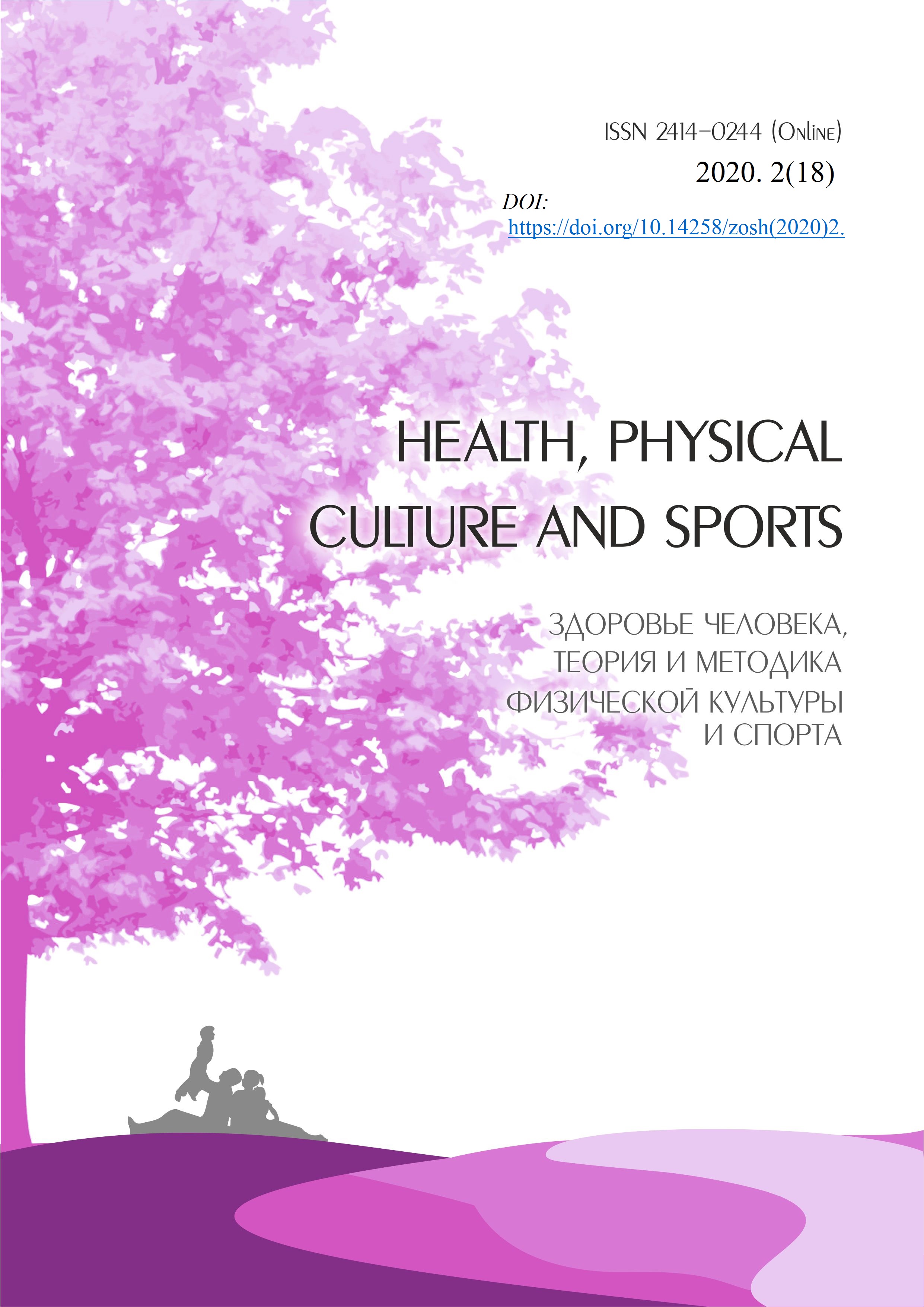PHYSICAL CULTURE AS FACTOR OF FORMATION OF SOCIAL HEALTH OF STUDENTS OF AVIATION HIGHER EDUCATION INSTITUTIONS
Abstract
The work examines the leading factors in the formation of social health of students, substantiates the use of physical culture to form and maintain social health. A significant part of theoretical and practical research on social health problems is devoted to students. The article talks about how to effectively select funds to increase physical performance, be able to correctly assess their physical condition and effectively distribute physical activity. Material and research methods The studies were conducted in the 2018/19 academic year at 2 civil aviation universities (Moscow State
Technical University of Civil Aviation and St. Petersburg State University of Civil Aviation). Students of the 2nd and 3rd full-time courses were involved in the studies, a total of 476 people involved in the “Physical Culture” program in accordance with the orders of the Ministry of Education and the Ministry of Transport of the Russian Federation. The analysis of educational activities in the classes on physical education. The results of the study. The obtained data on student health indicators were compared with studies of previous years. All indicators have deteriorated significantly, and this
indicates that students’ ECU has deteriorated. Conclusions. The level of professionalism and the health status of students indicates the need for effective training of highly qualified specialists aimed at shaping the social health of students.
Downloads
References
Волкова Л. М., Евсеев В. В. Формирование социального здоровья студентов через потенциал физической культуры Ученые записки университета им. П. Ф. Лесгафта. 2019. No 10 (176). С. 65–
69.
Лига М. Б, Цикалюк Е. В. Социальное здоровье студенческой молодежи: механизм формиро-
вания Гуманизация образования. 2014. No 5. С. 46–51.
Матвеева Н.А. Социальное здоровье молодежи: постановка проблемы и стратегия исследо-
вательского проекта Вестник Новосибирского государственного педагогического университе- та. 2017. No 5. Т. 7. С. 146–158.
Поздеева Е. Г. Социальные детерминанты здоровья студенческой молодежи Стратегические направления реформирования вузовской системы физической культуры. 2017. С. 116–121.
Родионова И. А., Шалупин В. И., Карпушин В. В. Фитнес-подготовка как фактор сохранения здоровья студенческой молодежи в системе высшего образования Гуманитарные науки. 2018. No 1 (41). С. 57–63.Физическая культура в образовательных учреждениях гражданской авиации В. И. Шалупин, И. А. Родионова, М. П. Перминов, Д. В. Романюк, И. А. Письменский, А. А. Голубев, Л. М. Волкова, В. В. Карпушин Учебник. Москва, 2017. 484 с.
Шалупин В. И., Родионова И. А. Организационно-методическая система обучения специали- стов управления воздушным движением проектированию самостоятельной физической трени- ровки. Инновации в гражданской авиации. 2017. No 3. Т. 2. С. 52–59.
REFERENCES
Volkova L. M., Evseev V. V. (2018). Social health and the role of physical culture in its formation. Health — the basis of human potential: problems and solutions. SPb.: Ed. Polytechnic. University, Vol. 13. No. 2. S. 609–615.
Volkova L. M., Evseev V. V. The formation of students’ social health through the potential of physical education Uchenye Zapiski universiteta im. P. F. Lesgaft. SPb.: Ed. Federal State Budgetary Educational Institution of Higher Professional Education “National State University of Physical Culture, Sports and Health named after PF Lesgaft, St. Petersburg”, 2019. No. 10 (176). S. 65–69.
League MB, Tsikalyuk EV. Social health of students: the mechanism of formation. Humanization of education. 2014. No. 5. S. 46–51.
Matveeva N. A. Social health of youth: problem statement and research project strategy Bulletin of the Novosibirsk State. ped un-that. 2017. Volume 7. No. 5. S. 146–158.
Pozdeeva EG Social determinants of student health Strategic directions for reforming the university system of physical education. SPb.: SPbPU, 2017. S. 116–121.
Rodionova I. A., Shalupin V. I., Karpushin V. V. (2018). Fitness training as a factor in maintaining the health of student youth in the higher education system. Humanitarian Sciences Scientific and Practical Journal, No. 1 (41). Pp.57–63.
Physical education in educational institutions of civil aviation. (2017). V. I. Shalupin, I. A. Rodionova, M. P. Perminov, D. V. Romanyuk, I. A. Pismensky, A. A. Golubev, L. M. Volkova, V. V. Karpushin. Textbook- Moscow, 484 p.
Shalupin V. I., Rodionova I. A. Organizational and methodological training system for air traffic control specialists in designing independent physical training. Innovations in Civil Aviation. 2017. Vol. 2. No. 3. S. 52–59.
Copyright (c) 2020 Health, physical culture and sports

This work is licensed under a Creative Commons Attribution-NonCommercial 4.0 International License.
An author should not normally publish manuscripts describing essentially the same research in multiple journals or publication venues. Such redundant publication is generally considered to constitute unethical publishing behavior, and if discovered may result in a manuscript under consideration being rejected, or a published article being retracted.
Authors of manuscripts reporting on original research should present an accurate account of the work performed, accompanied by an objective discussion of its significance. Underlying data should be represented accurately in the manuscript. The manuscript should contain sufficient detail and references to permit others to replicate the work. The fabrication of results and the making of fraudulent or knowingly inaccurate statements constitute unethical behavior and may be cause for rejection or retraction of a manuscript or published article.





